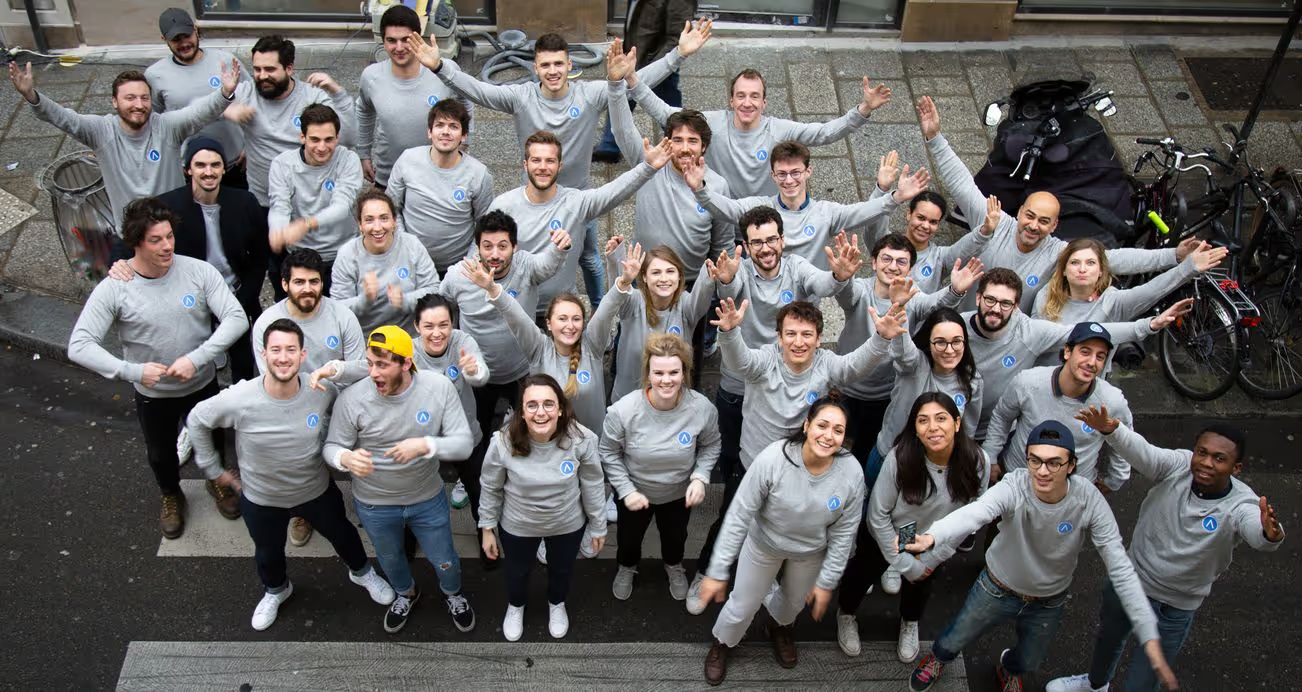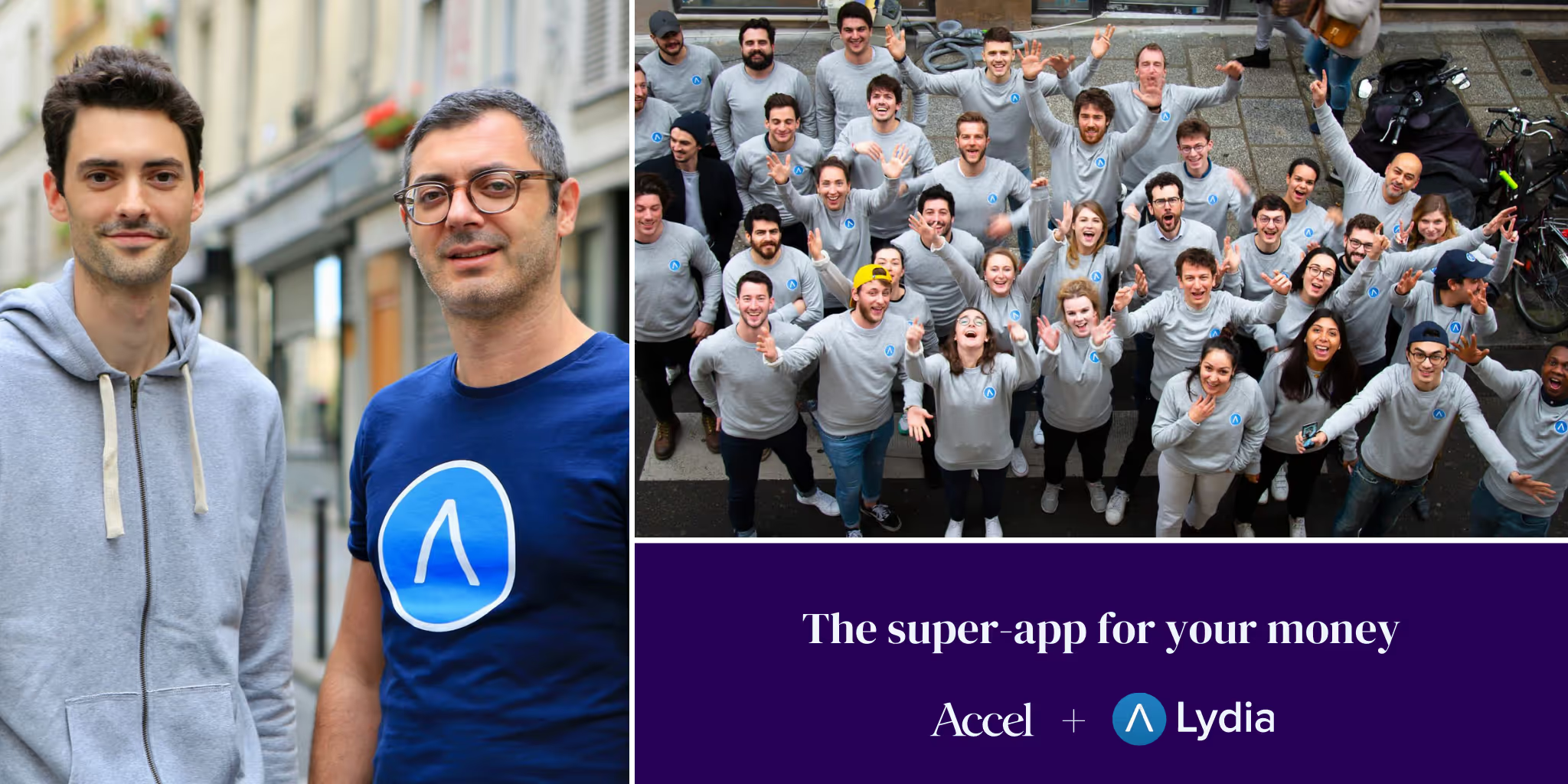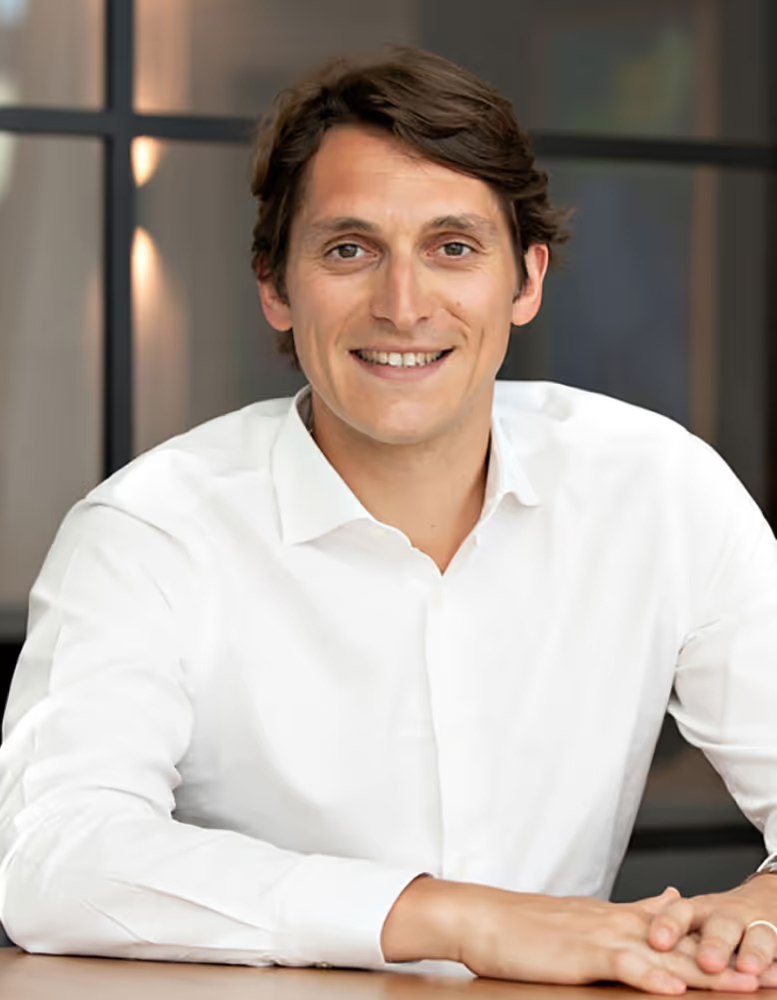Our Investment in Lydia: The super-app for your money

It’s remarkable that today we can seamlessly work from home thanks to Zoom and Slack, we can hail a ride with our smartphones or order a dinner delivery from our favorite restaurant, but many of us still can’t safely or quickly send money with one another digitally. While there have been great strides in the digitization of financial services, it’s stunning that the vast majority of global consumers today are still reliant on paper money and physical checks to settle up.
Over a decade ago now, we wrote a blog post on ‘what’s next in payments’ that led to our global payments thesis and investments in companies like Braintree/Venmo, WorldRemit, GoFundMe and Monzo, and more recently Galileo and TradeRepublic. One of the trends we talked about then is still just as important today: consumer payments. As technology continues to make the world a smaller place, consumers are demanding new ways to efficiently transact—especially with one another.
That’s why we were so struck by the team and product at Lydia, a Paris-based mobile app that makes P2P payments simple and safe. While we always had productive conversations, it wasn’t until our newest venture partner and former Venmo General Manager, Amit Jhawar, joined Accel that our partnership together became crystal clear.

In Lydia, we saw a product that mirrored Venmo’s simple but powerful app. Sign up in minutes, search for a user in your phone’s contact book and pay them. There is no paper or random strings of account numbers. We watched Lydia extend its use by adding individual and group money pots to help manage all the different budgets and expenses in people’s lives. One of the slickest implementations was enabling a single debit card to be dynamically assigned through the app to spend out of any money pot. No more 1 account, 1 card paradigm; many accounts could be tied to a single card.
Just like Venmo in the States, with Lydia, people no longer needed to be bound by banking hours, the physical cash they were currently carrying or the worry of finding exact change. But the epiphany was that years after Venmo was acquired by Braintree and became the leading app in the States, this was still a global problem.
While the vision, product and team was exceptional, there was one wrinkle in our story: the entire world was suffering through lockdowns due to the biggest pandemic of our lifetimes. While we fully expected a major softening in Lydia’s numbers, what they experienced was not that. Lydia crossed 4MM registered users as of early Q4, adding more customers in 2020 than in any other year in history. They also more than doubled Total Payment Volume (TPV) from 2019. What none of us could have predicted was that the need for Lydia transcended Covid-19. Transacting securely and safely was no longer a nice to have, it was a necessity. Increasingly, in a time of great uncertainty, we’ve also seen consumers want more clarity into their financial health which Lydia provides.
The vision of Lydia is a bold one and the team is just getting started. Lydia is aggressively increasing its geographic footprint and products and services it offers. The goal is to become the financial hub for its users, a sort of super app, that empowers users to control their money, on their terms. Cyril and the team have laid a great foundation on which to continue to build, and we’re honored to partner with Lydia on this global mission.
If you’d like to join us on this journey, Lydia is hiring.
—Amit and Luca
Great companies aren't built alone.
Subscribe for tools, learnings, and updates from the Accel community.

